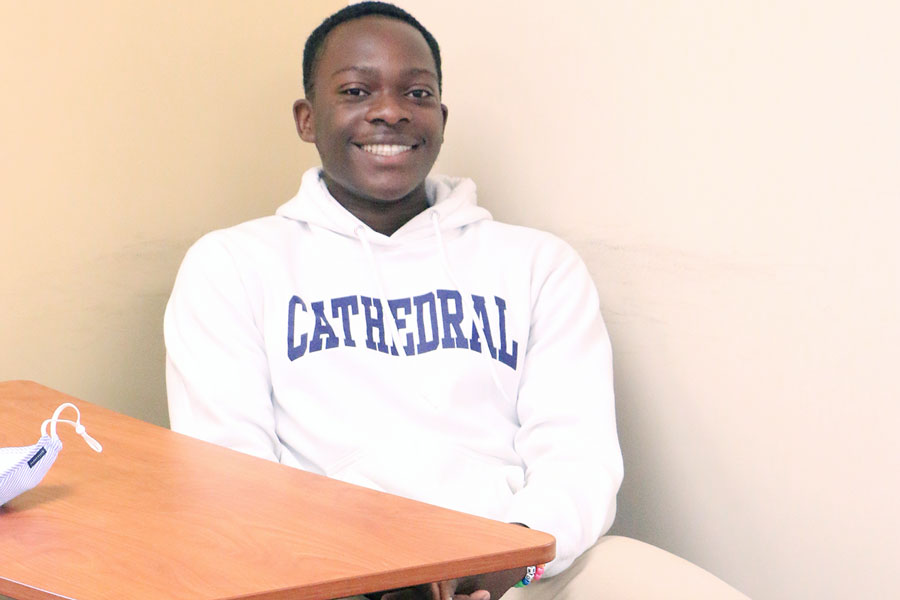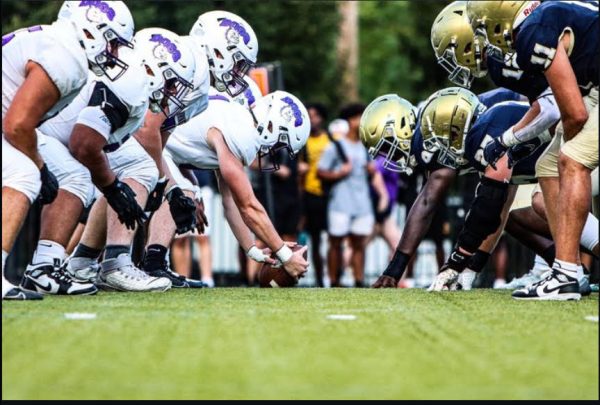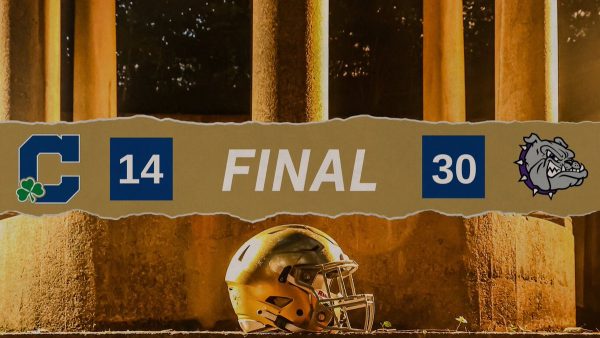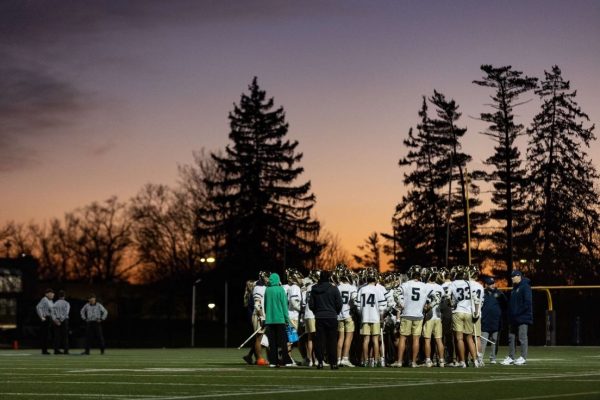Two-sport athlete takes pride in his heritage
Sophomore tells his story of his immigration from Nigeria
Sophomore Josh Omoruyi gets settled in to his seat before the start of his speech class with Mrs. Melinda Bundy.
With more than a century’s worth of history under its belt, this school is an institution built around a community of immigrants. While the new Americans of today aren’t streaming in from the Emerald Isle the same way they did a century ago, migrants are still a very much a part of the Hill.
Sophomore Josh Omoruyi traces his heritage back to Benin City, Nigeria. Emigrating in the 1990s, Omoruyi’s parents echoed the sentiment shared by millions. Omoruyi said, “They got out not because of any world threats, but because they just wanted to come here and start a new life. I think it sounded better than raising us over there. When they look back, they think they made the right decision.”
With an older brother and sister, Omoruyi bounced around from Michigan to California to Minnesota and then finally to Indiana. Omoruyi said that his parents were particularly close with some Nigerian Americans in Minnesota and were active in the community.
Most relatives, however, are still in Nigeria. Omoruyi said he occasionally speaks to some relatives on the phone and “every once in a while my mom will FaceTime” with her siblings, he said.
Outside his family, Omoruyi said that food and traditions come together to form his Nigerian American identity. “It’s definitely a part of me,” he said.
Traditions often come at “social events, like weddings and christenings,” said Omoruyi. One dance in particular, “atilogwu” is performed by children and teenagers. Omoruyi said, “It’s carried on through generations and has a lot of vigorous body movement.” Featuring a drum and an ogene (metal gong) to keep time, the dance can feature acrobatics that wouldn’t look out of place in a cheer or gymnastics routine.
Omoruyi said, “My parents didn’t teach me the full thing, but I’ve seen elements many times in my life.” The last time Omoruyi saw a completed version of the dance was when he was 3 and was visiting Nigeria. He might not be able to perform the flips, but with practice, Omoruyi said, “I probably could (dance the atilogwu).”
Like many second and third generation immigrants, food has been an essential link to Omoruyi’s heritage. West African food is (in)famous for its spice, and Omoruyi said his mom’s jollof rice is no exception.
But behind all the dancing and food is language. Growing up Omoruyi said, “(My parents) never really forced us to learn the language.” However, he said, “I can understand a little bit of Edo.”
Latching onto pieces of conversation work fine, but Omoruyi said, “I want to learn the language more so I can speak to my uncles and aunts.” And while he has “a pretty good grasp on the food,” Omoruyi also wants to learn more about the history of Nigeria and his family.
While he may have plenty of identifiers to choose from, Omoruyi said being Nigerian American “is definitely part of me.” Preferring the term over African American, Omoruyi said, “I would say, in the eyes of others, people tend to see true Africans in a different sense than African Americans. In my experience, I don’t think it’s really affected too much in terms of how people view me.”
Omoruyi is particularly active as a two-sport athlete. As an outside linebacker on the Class 5A State championship football team, Omoruyi played his first season since elementary this year. One of his coaches, Mr. Adam Barth, said, “Josh played a vital role to the team. His consistent and relentless effort, eagerness to learn, and positive nature put him in a position to help wherever he was needed.”
On the track, Omoruyi concentrates on the long jump, 100 meters , 200 meters and 4 x 100-meter relay. And while this year marks his first in the sport, Coach Mr. John O’Hara ‘02 said, “Josh is an extremely hard worker who is constantly working on his craft. He is a great athlete that is getting better and better at long jump and sprints. I think Josh has a bright future ahead of him.”
Beyond athletics, Omoruyi said, “I’m more on the English/language arts side of things.” In the next few years, Omoruyi hopes to look into law or journalism, particularly sports and politics.
As united as the Cathedral family can be, ethnic identity remains important facet for anyone. But in particular for Omoruyi, whether at home, in school or on the field, he said, “I’ll take pride in my upbringing and heritage. It’s something I’ll always keep in my mind. It’s something that fuels me.”
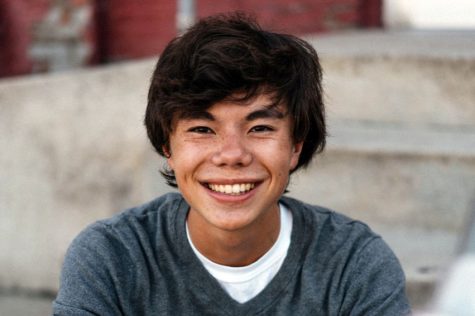
Andrew de las Alas is a senior and reporter for the Megaphone. He runs varsity cross-country, is co-captain of the speech and debate team and co-president...


